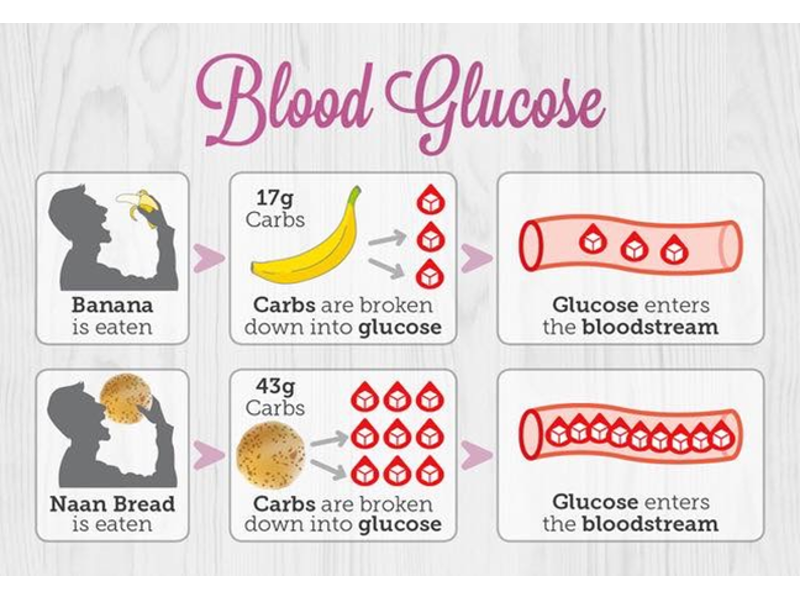carbs raise blood sugar Understanding carbohydrates
Hey there! Today we are going to talk about something that’s important for everyone to understand - the relationship between carbohydrates and sugar. Many of us consume carbohydrates on a regular basis, but do we really know how much sugar we are consuming in the process? Let’s start with the basics. Carbohydrates are a macronutrient that are found in many foods, including grains, fruits, vegetables, and dairy products. They are one of the body’s primary sources of energy, and play an important role in maintaining healthy blood sugar levels. But here’s the thing - when we eat carbohydrates, our body breaks them down into glucose (a type of sugar) to fuel our cells. And consuming too much sugar on a regular basis can lead to health problems like obesity, Type 2 diabetes, and heart disease. So, how do we monitor our sugar intake when consuming carbohydrates? One way is to understand the relationship between the two. Each gram of carbohydrate contains 4 calories, and one teaspoon of sugar contains around 4 grams of sugar. This means that for every gram of carbohydrate we consume, we are essentially consuming around 1 teaspoon of sugar. Let’s break this down even further. If we take a look at a typical soda, a 12-ounce can contains around 38 grams of carbohydrates - which means it also contains around 9.5 teaspoons of sugar. That’s a lot of sugar! In fact, the American Heart Association recommends that men consume no more than 9 teaspoons of added sugar per day, and women no more than 6 teaspoons. Of course, not all carbohydrates are created equal. Whole grains, fruits, and vegetables tend to be healthier sources of carbohydrates, as they contain fiber and other important nutrients. On the other hand, processed foods like candy, chips, and white bread contain a lot of refined carbohydrates and added sugars, which can contribute to health problems over time. So, how can we monitor our carbohydrate and sugar consumption? One way is to practice carb counting, which involves keeping track of the number of carbohydrates we consume in a day and adjusting our intake accordingly. This can be helpful for people with diabetes or other health conditions that require close monitoring of blood sugar levels. Overall, it’s important to understand the relationship between carbohydrates and sugar in order to make informed decisions about our diet. By making conscious choices about the types and amounts of carbohydrates we consume, we can maintain healthy blood sugar levels and reduce our risk of developing health problems later on.
If you are searching about How Much Sugar Is In 1 Gram Of Carbohydrates : what does 25 grams of you’ve visit to the right web. We have 5 Images about How Much Sugar Is In 1 Gram Of Carbohydrates : what does 25 grams of like Understanding carbohydrates | Know Diabetes, Carb counting insulin calculation – COJPFI and also Carb counting insulin calculation – COJPFI. Here it is:
How Much Sugar Is In 1 Gram Of Carbohydrates : What Does 25 Grams Of
 walkerahelicopterz.blogspot.comdiabetestalk blood raise diabetes carbohydrates
walkerahelicopterz.blogspot.comdiabetestalk blood raise diabetes carbohydrates
Blood Sugar Management With Carb Control – A Better Way To Age
 blog.northamericannutra.commoderate
blog.northamericannutra.commoderate
Understanding Carbohydrates | Know Diabetes
 www.knowdiabetes.org.ukcarbohydrates glucose starch understanding raise becomes metabolism
www.knowdiabetes.org.ukcarbohydrates glucose starch understanding raise becomes metabolism
4 Best Carbs For Lowering Blood Sugar | Dr. Sam Robbins
 www.drsamrobbins.comblood sugar carbs lowering
www.drsamrobbins.comblood sugar carbs lowering
Carb Counting Insulin Calculation – COJPFI
 www.futurilot.meCarb counting insulin calculation – cojpfi. Blood sugar carbs lowering. 4 best carbs for lowering blood sugar
www.futurilot.meCarb counting insulin calculation – cojpfi. Blood sugar carbs lowering. 4 best carbs for lowering blood sugar